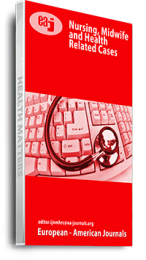Background: COVID-19 is a new viral disease, and health researchers are currently evaluating its effects on pregnant women and their unborn children. There is dearth of research available to support the argument that pregnant women are at greater risk of COVID-19 disease.Methods: This study used an exploratory research design to examine the knowledge, attitude and practice of preventive measures towards COVID-19 among pregnant women in Osogbo, Osun state. 382 subjects were selected using a simple random technique. Self-developed questionnaire was the instrument used to collect data. The data collected were analyzed using statistical package for social sciences (SPSS) and the results were presented using tables and percentages. Six null hypotheses were tested using chi-square at 0.05 level of significance. Results: Result of this study shows that nearly half of the respondents are within 18-25 (45.0%) years of age, 79(63.6%) are Muslims and 358(93.7%) are from the Yoruba tribe. This study also reveals that the respondents do have significant knowledge on the novel Coronavirus disease and a good attitude towards the prevention of COVID-19 as they practice frequent hand washing, sanitizer use and maintenance of social distancing. From the hypothesis tested, there is significant association between the education level of the respondents and their knowledge and attitude of preventive measures towards COVID-19 and no association between the age of the pregnant women and practice of preventive measures towards COVID-19. Conclusion: From the study, there seems to be a moderate level of awareness on the preventive measures towards COVID-19 among pregnant women in Osogbo but increase in the level of awareness and educational program can be done by the government and health workers in order have a very good attitude and awareness which will eventually improve the rate of adherence and compliance towards COVID-19 preventive measures.
Keywords: COVID-19, Knowledge, Preventive, attitude, pregnancy

